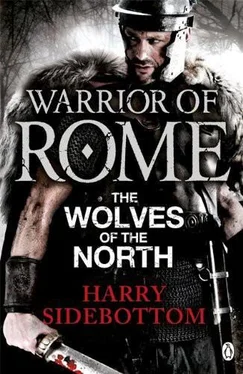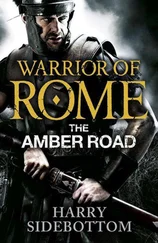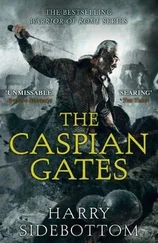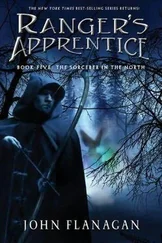Harry Sidebottom - The Wolves of the North
Здесь есть возможность читать онлайн «Harry Sidebottom - The Wolves of the North» весь текст электронной книги совершенно бесплатно (целиком полную версию без сокращений). В некоторых случаях можно слушать аудио, скачать через торрент в формате fb2 и присутствует краткое содержание. Жанр: Исторические приключения, на английском языке. Описание произведения, (предисловие) а так же отзывы посетителей доступны на портале библиотеки ЛибКат.
- Название:The Wolves of the North
- Автор:
- Жанр:
- Год:неизвестен
- ISBN:нет данных
- Рейтинг книги:3 / 5. Голосов: 1
-
Избранное:Добавить в избранное
- Отзывы:
-
Ваша оценка:
- 60
- 1
- 2
- 3
- 4
- 5
The Wolves of the North: краткое содержание, описание и аннотация
Предлагаем к чтению аннотацию, описание, краткое содержание или предисловие (зависит от того, что написал сам автор книги «The Wolves of the North»). Если вы не нашли необходимую информацию о книге — напишите в комментариях, мы постараемся отыскать её.
The Wolves of the North — читать онлайн бесплатно полную книгу (весь текст) целиком
Ниже представлен текст книги, разбитый по страницам. Система сохранения места последней прочитанной страницы, позволяет с удобством читать онлайн бесплатно книгу «The Wolves of the North», без необходимости каждый раз заново искать на чём Вы остановились. Поставьте закладку, и сможете в любой момент перейти на страницу, на которой закончили чтение.
Интервал:
Закладка:
That night, Ballista lay watching sheet lightning on the northern horizon. Rain would come soon, Rudolphus had said.
The third day, the Steppe reverted to type, a flat run of brown-black grass as far ahead as could be seen. The north wind had brought down the clouds. Black and without a break, they slid south low overhead. As the travellers rode south-west, it was as if they were trapped between two solid planes, like the hemp between Maximus’s blades.
By noon, it was dark enough to be evening. The thunder welled up in the clouds. The sheet lightning accentuated the gloom with its sporadic flashes of pure white. In one of these Ballista saw three men on ponies riding parallel to them in the south. A quarter of a mile away, half a mile? It was impossible to judge.
‘There are many broken, tribeless men on the Steppe,’ Rudolphus said. ‘More now, after Naulobates’ victory; many Alani, riders from the Sirachoi, Aorsoi, their subject tribes.’ The guide shrugged. ‘Heruli too. Fear made some of the brothers slip away from the fighting. They were fools. It is better to stand up to the arrow-storm and the steel for an hour or two, better to take the wound’ — he held up his right hand, with the truncated digits — ‘better even to die, than live as an outcast. It is a hard life; bad for the soul. Those men have seen our horses and pack-ponies and the baggage. They may try to steal them. But, unless there are many of them, they will not try and fight us for them.’
They made camp early, under a loud, angry sky. Ballista decided they would set pickets. To keep them sharp, prevent any falling into a routine, they would be chosen by lot each evening. After dinner, Ballista and Maximus took the first watch. They sat, cloaks pulled around them, at either end of the horse lines, to the west of the camp.
Ballista could sense the rain in the storm. Nine more days to Tanais, some of them would be wet. A day or two in the town hiring a boat, another day or two crossing Lake Maeotis. Would there be an imperial official with new orders waiting for them in the Kingdom of Bosporus? If so, they might have to winter in Panticapaeum again. If not, they should be able to get passage across the Euxine to Byzantium before the weather closed the shipping lanes. If no mandata awaited them there either, he was minded to journey on by land. The weather would be bad, but he still had diplomata to use the cursus publicus. They could use the imperial posting service up through the Danubian provinces, across the Alps — if the snow had not closed the passes — and report to Gallienus at Mediolanum, assuming the emperor was there with the field army.
He was not unduly worried how Gallienus would receive them. True, he had ransomed no Roman prisoners, and had failed to turn the Heruli against the Urugundi and the other Goths. Yet there was war on the Steppes. Having fought in the Caucasus, he did not think Naulobates and Hisarna were likely to attain a quick victory over the Alani. The remote passes and upland pastures were studded with forts and made ideal terrain for ambush. That was three tribes too occupied to raid the imperium. And half the gold with which he had been entrusted was returning.
The thunder and lightning were spooking the horses.
Time was passing since Ballista had been forced briefly to assume the purple. Gallienus had not had him condemned in the immediate aftermath. There was no reason to think the emperor would do so now. Unless…
Lightning illuminated the whole Steppe with a fleeting brilliance that had no perspective, and was gone in a moment. The blackness after was impenetrable.
Unless there had been an outbreak of usurpations, and the consilium thought a purge was necessary to reassert the authority of the central government. Ballista had been away from the imperial council for a long time. He had never fully understood its inner machinations. Undoubtedly, he had enemies there. Yet he also had friends. The last he had heard, Aurelian and Tacitus still stood high in the favour of Gallienus.
Lightning tore across the sky.
Ballista wondered how Rutilus had got on in his embassy to the other Gothic tribes, the Borani and the Grethungi. Being yoked with the old consular Felix would have been no joy.
Halfway along the line, a horse reared against its tether. Ballista got to his feet, stretching the knots out of his muscles. A figure was at the horse’s head.
‘Maximus?’
A gust of wind snatched the word away.
Ballista walked down the line of white-eyed horses.
There were two men by the plunging horse.
‘Maximus!’ Ballista threw off his cloak, drew his sword. ‘Horse thieves!’
Ballista ran at them. One figure swung up on to the animal, the other holding its head.
‘Maximus!’
The second man jumped up behind the first. The horse bolted.
Something warned Ballista. He turned, weapon ready. A blade sliced towards his head. He parried, and riposted. But the man had leapt aside, and was running off into the darkness.
‘Maximus!’
A dark shape in front. ‘Is that you?’
‘Of course it is fucking me.’
Other men were running up from the campfire.
‘They just got the one.’
The next night, the storm returned, but still the rain did not fall. About midnight, someone shook Calgacus awake.
‘Enough, enough, you ham-fisted fucker.’
Tarchon stopped shaking him. ‘Your turn with the pederast.’
Calgacus clambered to his feet. His shoulder hurt. It seized up when he slept. He yawned, coughed, hawked, spat and farted; all as loudly as possible, inspired by a half-realized resentment at others sleeping when he was awake. The noises were lost in the clamour of the storm.
Hippothous was waiting by the fire with one of the soldiers. Sparks whirled away to die in the darkness.
The change of pickets was shite. Calgacus would tell Ballista in the morning. If both men on watch came in to rouse their replacements, it would not take the most intelligent horse thief in the world to work out when to strike. Although if any of the fuckers were out on a night like this, good luck to them.
The horses were tethered in two lines running north-south out to the west of the camp. Between the lightning flashes, it was so dark they were barely visible from where the men slept around the fire. Hippothous disappeared off to the northern picket.
Calgacus walked through the lines to the southern post. The horses shifted and whickered at him as he passed. He liked the sweet smell of them. He muttered soothing things. A Herul pony tried to nip him.
Out beyond the shelter of the animals, the wind buffeted him. There was no cover, so he sat with his back to it. He pulled his cloak around him. Since they had been there, he had never liked the night on the Steppe.
Up above, the storm roared. There were no stars. All the constellations, the Pleiades, the Eyes of Thiazi — whatever different men called them — were gone. The moon had vanished as surely as if Hati the wolf had devoured him.
It was Ragnarok weather. At the end of days, Fenrir the wolf will break his bonds, Jormungand the serpent rear up from the sea, the dead rise from Hel, and Naglfar — the ship made from dead men’s nails — bring doom to gods and men.
Calgacus wondered if he believed it, any of it. They were the first stories of the gods he could remember. The Angles had seemed to believe. But it had been made very clear he was not an Angle. He was a nithing, a Caledonian slave.
He had grown up an outsider in Germania. All these years with Ballista, he had remained an outsider among the Greeks and Romans. When the traditional gods were always beings other people worshipped, it made his own belief in any of them improbable. Those religions he had encountered which offered a new identity — Manichaeism, Christianity — struck him as the self-evident results of human ingenuity.
Читать дальшеИнтервал:
Закладка:
Похожие книги на «The Wolves of the North»
Представляем Вашему вниманию похожие книги на «The Wolves of the North» списком для выбора. Мы отобрали схожую по названию и смыслу литературу в надежде предоставить читателям больше вариантов отыскать новые, интересные, ещё непрочитанные произведения.
Обсуждение, отзывы о книге «The Wolves of the North» и просто собственные мнения читателей. Оставьте ваши комментарии, напишите, что Вы думаете о произведении, его смысле или главных героях. Укажите что конкретно понравилось, а что нет, и почему Вы так считаете.












